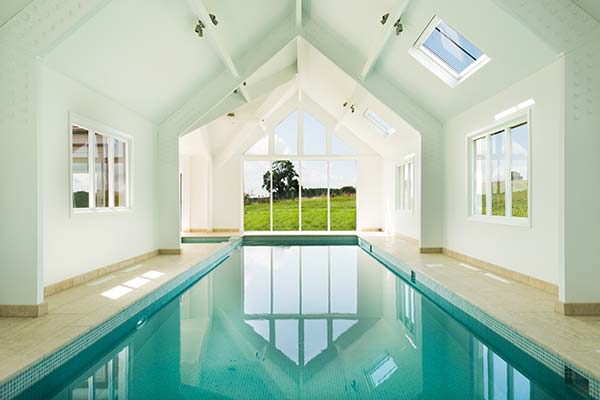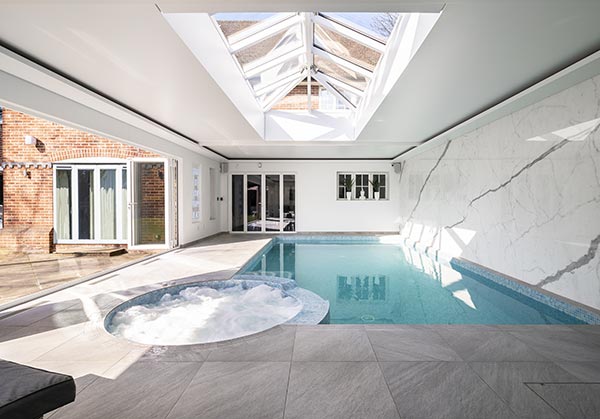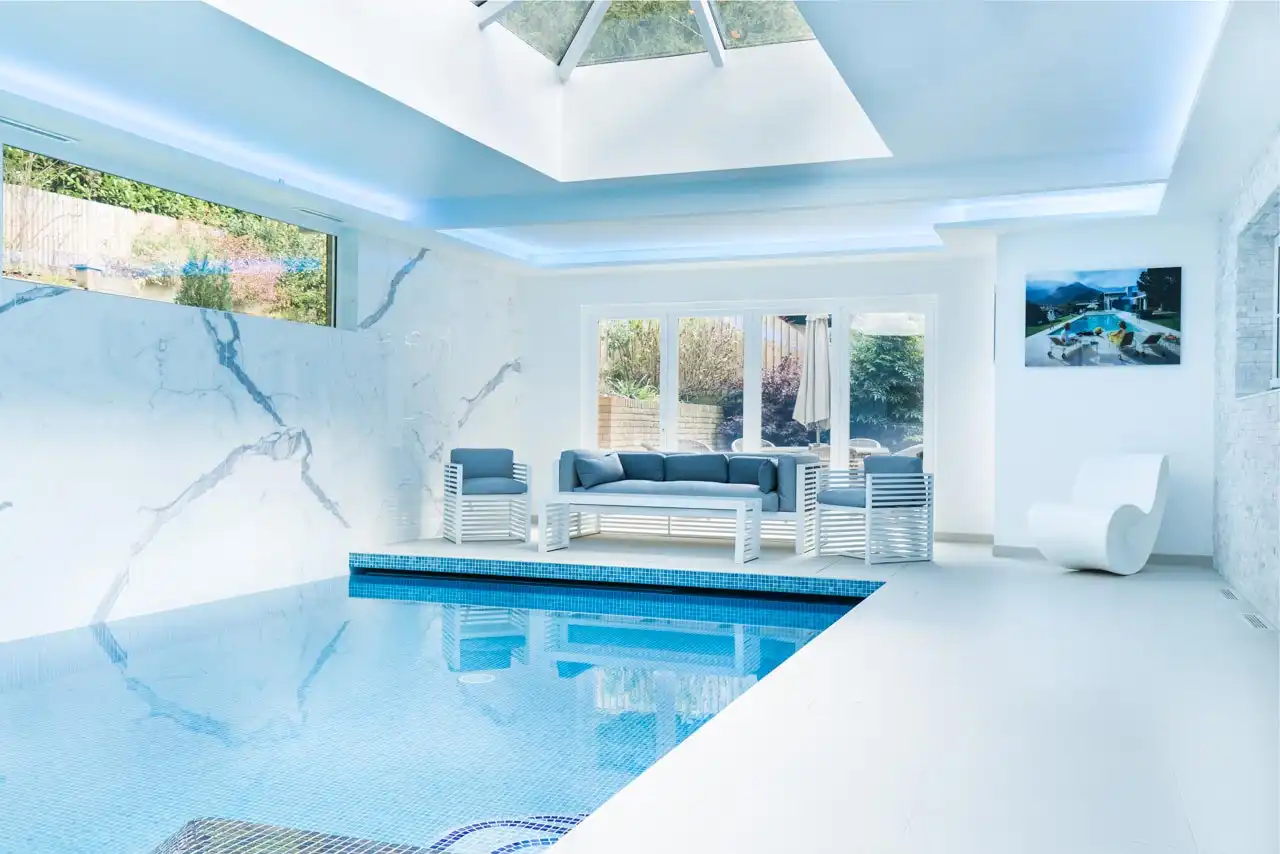
As the cost of energy continues to rise, homeowners contemplating the addition of an indoor pool must make informed choices to manage the heating and operating expenses effectively. In this post, we will explain the components that make up the typical annual running cost for the average indoor pool. We will also explore what your indoor pool designer needs to consider when looking at low-carbon heating alternatives.
Annual Running Cost Breakdown
The annual cost of operating an indoor pool comprises several components, each playing a vital role in your overall expenses. For instance, a 10m x 4m indoor pool, used approximately 2 to 4 hours daily, with a closed pool cover, would incur the following costs:
- Pool Water Heating & Pool Hall Air Heating, Dehumidification, Ventilation: £3,200 (including VAT)
- Pool Circulation & Water Treatment: £2,450 (utilising a VS Pump & Timed operation)
- Lighting of the Pool Hall and Ancillary Areas: £400
This equates to roughly £6,000 annually or around £16 to £17 per day. By incorporating solar panels on the pool house roof, you can potentially reduce this cost by an additional 30%*.
Choosing the Most Cost-Effective Heating
It's a common misconception that heat pumps are the most cost-effective heating option for indoor pools. While they offer efficiency benefits, electricity costs significantly more than gas. Unfortunately, the high cost of electricity often negates these savings. However, heat pumps contribute to reduced CO2 emissions and if you can incorporate solar PV or Solar PVT, your grid energy consumption and resulting expenses can be drastically reduced.
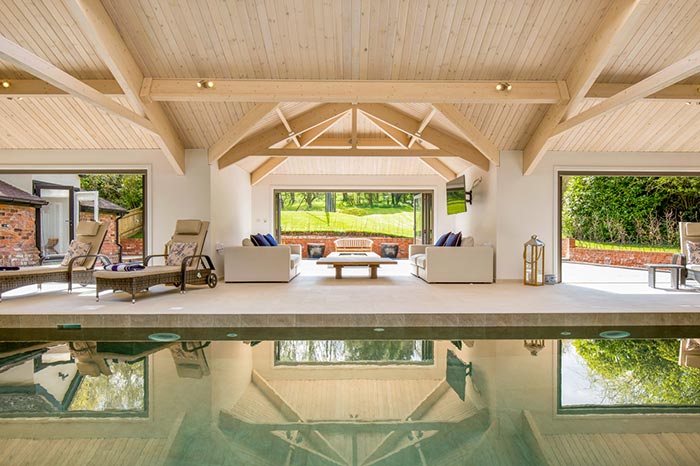
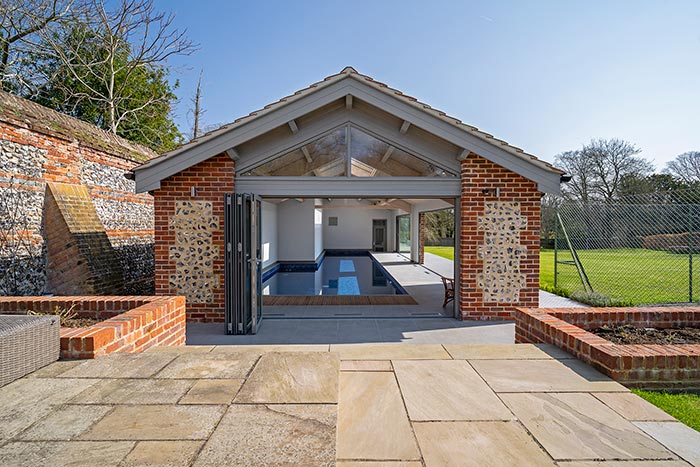
Heating Options for Indoor Pools
Your choice of heating method may depend on factors such as location and available services, including Gas, Electricity, Oil, and LPG. An experienced indoor pool designer will assess your location, electrical capacity, and specific needs to guide you toward the most suitable heating option. It's crucial to explore the cost benefits and ROI of supplementary renewable technologies in detail.
Additional Considerations
The water temperature of your pool can impact energy consumption. For serious swimmers, a water temperature of 25 to 26°C is preferred, while leisure swimmers often opt for 29 to 30°C. Choosing the lower temperature of 25°C can yield annual savings of approximately £650 for the same 10m x 4m indoor pool.
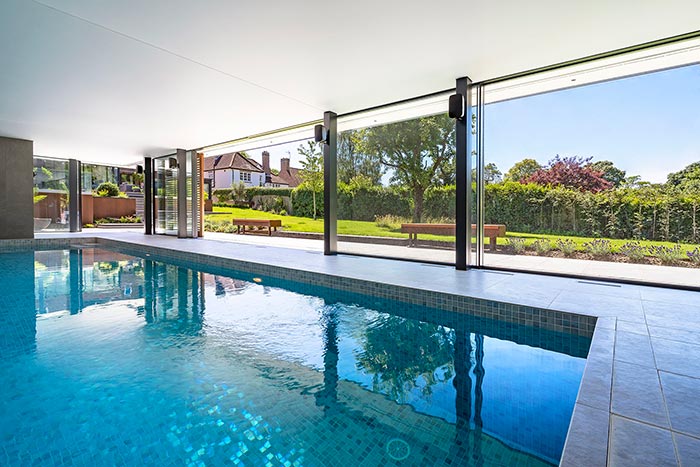
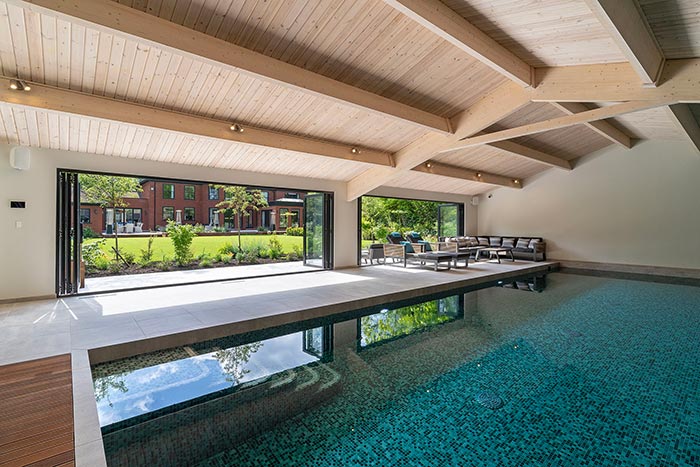
The Devil is in the Detail
Assessing options for heating and understanding location limitations and utility upgrade costs is vital. Each client has individual needs and any assumptions made can cause the project to go over budget. In some cases, due to limited electrical supply or prohibitively high upgrade costs, a hybrid heating system may be necessary, combining traditional fossil fuel options with heat pumps or low-CO2 alternatives like Bio LPG.
Real-Life Solar Benefits
Origin recently completed a 2023 indoor pool project in Hertfordshire, where a large south-facing roof accommodated numerous solar PV panels. On sunny days, these panels supplied a significant portion of the required energy. Excess energy was used within the house, and any surplus was sold back to the grid.
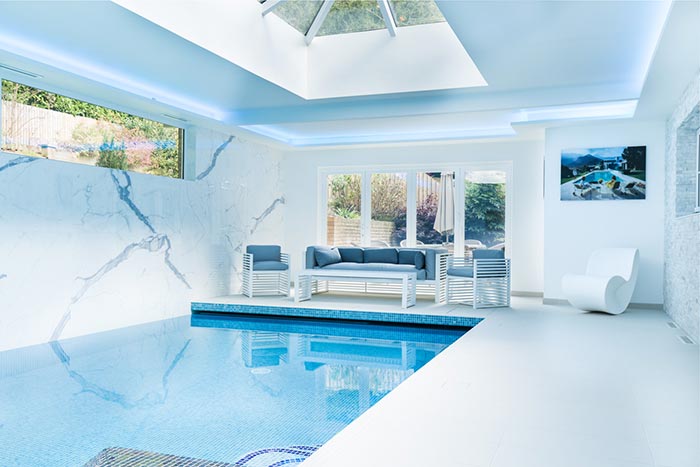
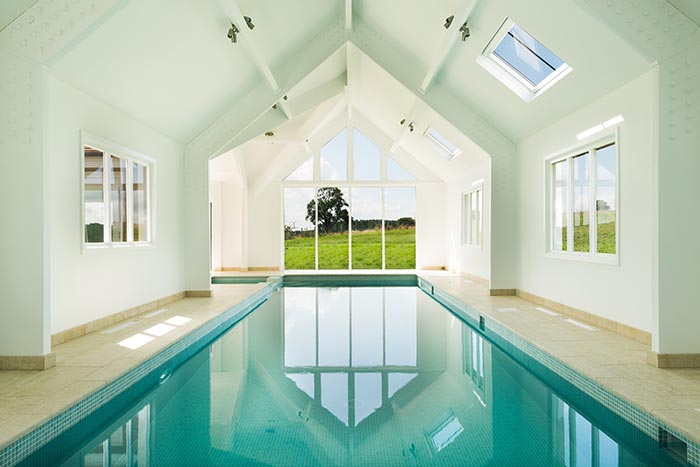
Top Tips for Your Indoor Pool Project
- Think twice about splitting individual parts of the build across multiple companies. One company with a proven track record that can do it all is best
- Collaborate with professionals experienced in indoor pools and green energy projects.
- Request a single warranty for the entire project.
- Visit existing projects and speak with owners to gather insights.
At Origin, we combine our expertise in indoor pool design with a commitment to sustainable, cost-effective heating solutions. We're here to help you make informed choices that align with your needs, location, and budget, ensuring your indoor pool is a source of enjoyment, comfort, and efficiency.



